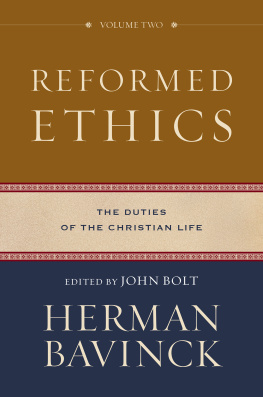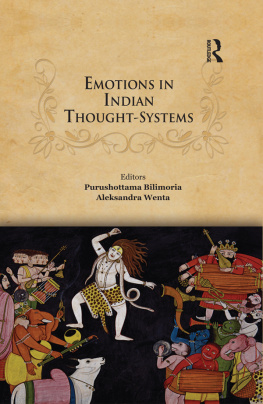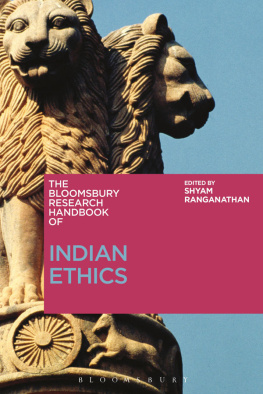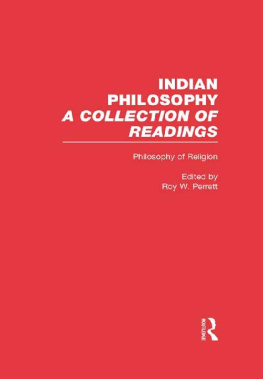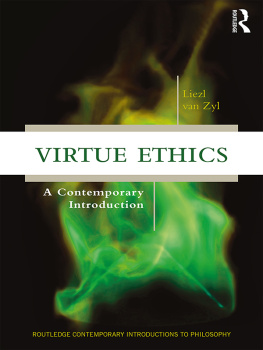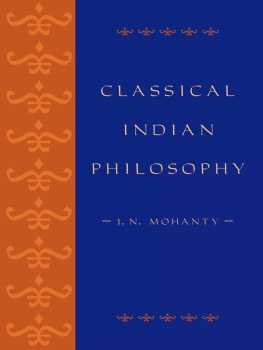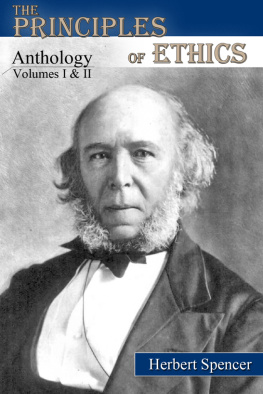Bilimoria - Indian Ethics volume 1
Here you can read online Bilimoria - Indian Ethics volume 1 full text of the book (entire story) in english for free. Download pdf and epub, get meaning, cover and reviews about this ebook. year: 2016, publisher: Taylor & Francis (CAM), genre: Politics. Description of the work, (preface) as well as reviews are available. Best literature library LitArk.com created for fans of good reading and offers a wide selection of genres:
Romance novel
Science fiction
Adventure
Detective
Science
History
Home and family
Prose
Art
Politics
Computer
Non-fiction
Religion
Business
Children
Humor
Choose a favorite category and find really read worthwhile books. Enjoy immersion in the world of imagination, feel the emotions of the characters or learn something new for yourself, make an fascinating discovery.

Indian Ethics volume 1: summary, description and annotation
We offer to read an annotation, description, summary or preface (depends on what the author of the book "Indian Ethics volume 1" wrote himself). If you haven't found the necessary information about the book — write in the comments, we will try to find it.
Indian Ethics volume 1 — read online for free the complete book (whole text) full work
Below is the text of the book, divided by pages. System saving the place of the last page read, allows you to conveniently read the book "Indian Ethics volume 1" online for free, without having to search again every time where you left off. Put a bookmark, and you can go to the page where you finished reading at any time.
Font size:
Interval:
Bookmark:
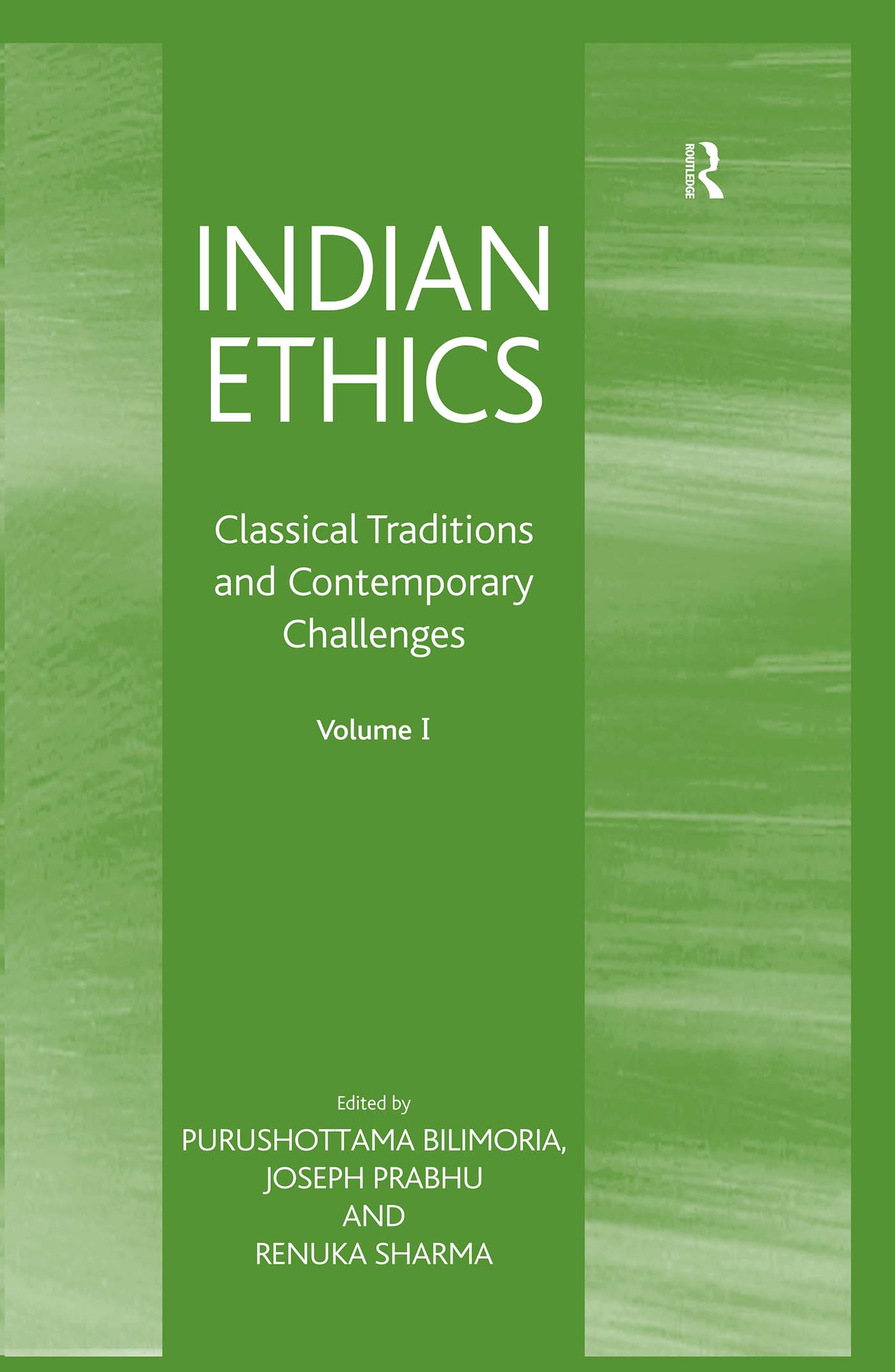
Purushottama Bilimoria, Joseph Prabhu and Renuka Sharma 2007
All rights reserved. No part of this publication may be reproduced, stored in a retrievel system or transmitted in any form or by any means, electronic, mechanical, photocopying, recording or otherwise without the prior permission of the publisher.
Purushottama Bilimoria, Joesph Prabhu and Renuku Sharma asserted their moral right under the Copyright, Designs and Patents Act, 1988, to be identified as the eidtors of this work.
First published 2007 by Ashgate Publishing
Published 2016 by Routledge
2 Park Square, Milton Park, Abingdon, Oxon OX14 4RN
711 Third Avenue, New York, NY 10017, USA
Routledge is an imprint of the Taylor & Francis Group, an informa business
British Library Cataloguing in Publication Data
Indian ethics: classical traditions and contemporary challenges: An anthology
1. Ethics India 2. Hindu ethics 3. Buddhist ethics I.Bilimoria, Purushottama II.Prabhu, Joseph, III. Sharma, Renuka
170.9'54
Library of Congress Cataloging-in-Publication Data
Indian ethics: classical traditions and contemporary challenges: An anthology / edited by Purushottama Bilimoria, Joseph Prabhu, and Renuka Sharma.
p.cm.
Includes index.
ISBN 0-7546-3301-2 (hardback)
1. EthicsIndia 2. Social ethicsIndia. I. Bilimoria, Purushottama II. Prabhu, Joseph. III. Sharma, Renuka M.
BJ122.163 2004
70954dc21
2003063853
Notice:
Product or corporate names may be trademarks or registered trademarks, and are used only for identification and explanation without intent to infringe.
ISBN-13: 978-0-754-63301-3 (hbk)
ISBN: 9-781-3519-2806-9 (ebk)
J.N. Mohanty
Bimal Krishna Matilal
Daya Krishna
Laurie L. Patton
Roy W. Perrett
Ian Whicher
Purushottama Bilimoria
Maria Heim
Christopher Key Chapple
Padmasiri de Silva
Damien Keown
Jay L. Garfield
Mark Siderits
M.K. Sridhar and Purushottama Bilimoria
Bhikhu Parekh
Christopher Key Chapple
Pratap Bhanu Mehta
Rajendra Prasad
Joseph Prabhu
Stephen Phillips
This is a remarkable achievement both in scope and organization and in the outstanding quality of some essays. The editors have earned the gratitude of all Western students of Hindu and Buddhist thought and of comparative ethics. New possibilities of dialogue have been opened up.
Alasdair MacIntyre.
Indian ethics is one of the great traditions of ethics in world-historical philosophy. Indian ethical insights have influenced a wide spectrum of thinkers ranging from the early Greeks and Goethe to Emerson and Thoreau. Yet there have been few systematic studies of the broad range of Indian ethical reflections in contemporary philosophical idiom.
This comprehensive compendium explores the scope and limits of Indian ethical thinking. Thirty distinguished writers engage orthodox and heterodox schools of thought from the Vedas, Upanishads, the Mahbhrata and Bhagavad-Gt to Buddhist, Jaina, and Skhya-Yoga philosophies, and reflect on the interpretation of their teachings and practices in contemporary contexts and modern secular sensibilities.
The General Introduction examines the distinctive nature of moral philosophy in India as compared to the West. Part A analyzes classic texts dealing with such themes as: Hindu values, virtues and statecraft, the ends of living, rites and gifting, acts and duties, the implications of karma and dharma, caste issues, law, the ethic of yoga and discipline, and the reality of evil and suffering. Part B focuses on Buddhist and Jaina ethics through such topics as emotions, action, consequences, virtue-ethics, renunciation, enlightenment, human rights and ecology. Part C extends and adapts these traditional moral thinking and praxis to modern and postmodern worlds, encountering contemporary thinkers such as Gandhi and Aurobindo, and tests them against present-day issues such as rights, citizenship and democracy, religious tolerance, environmental and animal ethics, and the challenges posed by the imperatives of peace and nonviolence, justice and freedom. Finally, Volume II will pay special attention to post-colonial developments and feminist and applied ethics on such questions as the gendered self, gender equity, sat and abortion, health care and biomedical ethics.
Given the range of topics covered and the eminence of the featured authors, this volume offers an invaluable resource to a wide variety of readers in the fields of philosophy, religion, sociology and cultural studies, and to lay seekers and activists in pursuit of Indian ethical wisdom and South Asian responses to contemporary moral dilemmas.
This volume has been dedicated to the memories of
the late Bimal K. Matilal, Renuka Sharma, Ninian Smart, Bernard Williams
for inspirations and contributions of each in their own way to the genesis and completion of this project.
Kuryd vidvs tath sakta cikrurlokasagraham
The disinterestedly wise ought to desire for the holding together of all being
(Bhagavadgt III 25)
Our aim in undertaking this compendium is to provide an account of Indian ethical traditions from early antiquity to the present and to do so in contemporary philosophical idiom. Scholars of comparative philosophy who resist the temptation of an easy relativism, acknowledge that there are three great traditions of world philosophy, those of India, China, and the West. Likewise, studets of comparative civilizations have documented the vast influence of the Indian tradition on figures and groups as diverse as the early Greeks starting with the Orphics and the Pythagoreans the German Idealists, and Emerson and Thoreau in the Americas. And yet academic philosophy, at least in the West, has not registered either the intrinsic importance or the influence of Indian ethics. From a philosophical standpoint this curious omission has had baleful effects insofar as it has severely narrowed the scope and range of ethical discussion. At a time when there is much talk of pluralism, cross-cultural sensibilities, multiculturalism, and globalization such a gap is doubly unfortunate because it hinders the conversation between cultures that is much needed in a complex contemporary environment.
Given this lacuna, it is strange that there have not been more efforts made by scholars of Indian philosophy to fill this gap. There have indeed been fine and significant books on Indian metaphysics, epistemology, and logic, but sadly very few systematic and wide-ranging studies of Indian ethics. These volumes, we hope, go some way towards meeting this need.
Anyone who has worked within a classical philosophical tradition of such longevity and complexity knows that it demands a number of skills. One needs not only linguistic, philological, and historical knowledge, but also philosophical competence and the ability to interpret ancient wisdom in contemporary contexts. When we conceived of this project we had three purposes in mind: first, to provide a faithful account of the great texts and major schools of both the orthodox and heterodox traditions; second, to relate such an account to present-day concerns and contexts; and third, to highlight what we felt might be distinctive about the Indian ethical traditions in terms of both content and style, text and context. We have expanded more fully on these aims in our general introduction.
Font size:
Interval:
Bookmark:
Similar books «Indian Ethics volume 1»
Look at similar books to Indian Ethics volume 1. We have selected literature similar in name and meaning in the hope of providing readers with more options to find new, interesting, not yet read works.
Discussion, reviews of the book Indian Ethics volume 1 and just readers' own opinions. Leave your comments, write what you think about the work, its meaning or the main characters. Specify what exactly you liked and what you didn't like, and why you think so.

